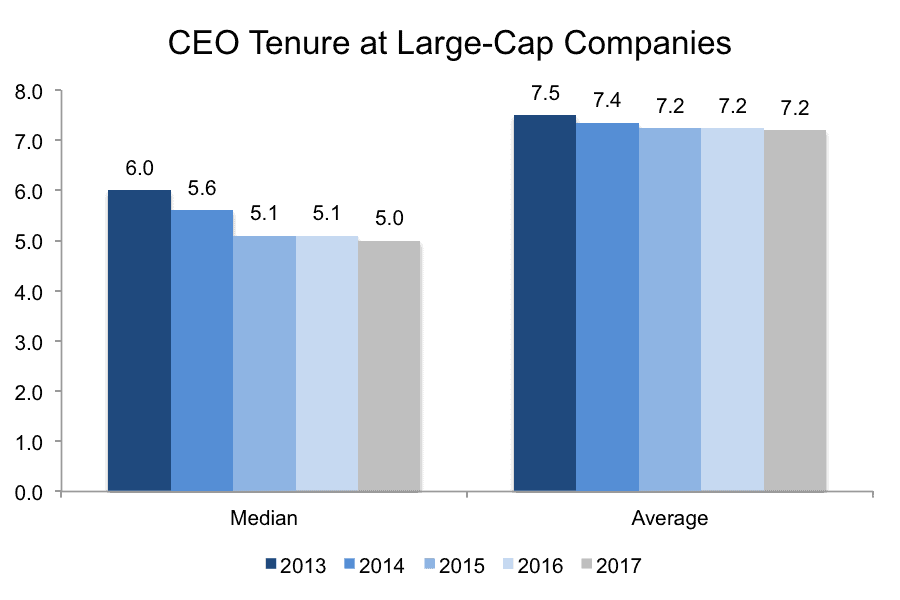The web offers countless articles on how to reach that coveted position of CEO. These articles tell you which degree you need, how your career path should ideally look like, and how to get headhunters to notice you. They are all about the conditions that COMPANIES make before hiring you.
On the other hand, you’ll struggle to find resources on the conditions that YOU should make before accepting a position as CEO (or any other form of “boss” position).
You might be surprised to hear that if someone offered me an interesting CEO post today, my first instinct would be to turn it down. I view these positions as highly problematic, both from experience and observation. Grandiose titles, stimulating challenges and outrageous remuneration packages are tempting. But there is a genuine question whether it’s all worth the risks and the extraordinary amount of complexity that you are inevitably going to burden yourself with.
If I wanted to engage with the party that is offering the position, I’d ask a lot of questions and set a few clear demands. These would all be constructive and aimed at coming to a positive conclusion. However, I am under no illusion that they’d also, in effect, work as a giant filter.
The following article is primarily for anyone who is already negotiating such a position or has it as a long-term goal that they are working towards.
Why I am sceptical about (most) CEO positions
Being the boss of a company requires almost superhuman abilities. You will be expected to know virtually everything about anything, and ideally from day one.
Having everyone assume you are Superman begs the following questions:
- If you have such outstanding abilities in leading and managing, why don’t you build your own company? We live in the golden age of entrepreneurship and USD 100 start-ups. Make yourself rich, not others. Be the CEO of the company you own 100% of, rather than sign an employment contract. (Incidentally, that’s the position I am in right now after I left my most recent CEO post.)
- Does your prospective employer offer you the right kind of support? You will only ever be able to succeed in these superhuman efforts if you have a support structure to match. From my own experience and from what I regularly see happening elsewhere, I doubt that’s the case at overly many companies. They’ll ask you to drive at Formula One speed but give you a go-kart to enter the race with (and you might find the tank empty).
- Does the CEO title hold up to what it’s supposed to be, i.e., does it put you into a position of remarkable power? Or is it a hyped title for a job where 101 different stakeholders will have some hold over you, and you are actually less in control of outcomes than you think you are? Most people overestimate how much power you have as CEO, and there are a lot of surprising facts about this particular job position. I whole-heartedly recommend you study this long-read article from the Harvard Business Review about the seven most common surprises about CEO positions. It will give you a realistic perspective.
Being the boss of a company requires almost superhuman abilities.
You can see where this is going. Being CEO is not nearly as amazing and all-powerful as you probably think it is. It can be a veritable nightmare if conditions for your position aren’t as good as they should be. There is a long-established trend for CEOs lasting a lot less time than in days gone by. As the person at the top, you will be responsible for absolutely everything and you can end up shouldering the blame for things that are entirely out of your control. Partly because of today’s culture, you will usually be expected to resign, even if something wasn’t your fault.

CEO tenure at large cap companies – the trend is towards ever shorter terms (source: Harvard Law School Forum)
Though there are also remedies to deal with these issues. It’s up to your prospective employer to make it work, but it also requires your input.
Which is where my list of recommended constructive demands comes in. Your prospective employer should be delighted about you making these demands, because they are geared towards creating a more robust, safer structure.
If you are about to venture into the world of being a boss, please do consider the following eight points. Paying close attention to them can save you from a lot of hardship, wasted time, and personal risks.
1. The CEO hires and fires staff, no one else does
This one seems obvious, right?
Real life is quite different, though.
Are you considering to run a company that is owned by a wealthy individual or family office? Get ready for family members getting dumped upon you for grace-and-favour positions. I have experienced it myself, and I have seen it elsewhere more times than I care to remember. Check point #7 for how this can damage a company’s culture.
Is it a turnaround situation you are looking at? Make sure there is enough money in the bank to pay redundancies for (many or even all) staff members. If you can’t pay to let people go, you’ll end up being stuck with toxic staff members. It’ll then only be a matter of time before their continued failures end up being viewed as your fault.
Your prospective employer should be delighted about you making these demands, because they are geared towards creating a more robust, safer structure.
Do you have board members who are very engaged about the details of the operative business (excellent!) and who feel they should back this up with sending preferred candidates for employment your way? Unless you had drawn that line before you signed your employment contract, you’d find yourself in an awkward position to turn them down. Such situations will damage the dynamics and trust between the board and executive and mess up governance structures. Once you allow one such imperfection in governance standards, other exceptions will follow. It will put you on a slippery path altogether.
Another aspect of this is your ability to hire your own executive team. Are you allowed to replace the existing executive team to bring your own management staff on board? I would go as far as saying that if you aren’t allowed to do that, then you are at a high risk of lasting less than a year. You’ll need your own team to help you fight the manifold internal and external battles that will inevitably come your way. Being able to hire your own executive team to support you in exactly the way you want it is a must.
Before you accept a position as boss man or boss woman anywhere, speak to whoever is your negotiating counterpart about the company’s future hiring policy.
Will you be the sole and only person to make the ultimate decisions on hiring and firing? Will this be agreed both in writing as well as by handshake? Great!
If not, decline the position there and then. It’s a dud.
No exceptions, no excuses. Trust me on that one. I have put it first on the list for a reason.
2. The board does board work, and it has to do that well
Most companies that hire a CEO will already have a board of some kind. I am a big fan of having a board. But it has to be a world-class board both in terms of who is a member and how it’s run. Else, it’s a no-go proposition.
In case you didn’t realise, boards are the boss of the CEO. If you are reporting to one supervisor now, you’ll effectively report to three, six, nine, or twelve supervisors once you are CEO (depending on how many board members your company has). The Chairman signs the CEO’s hiring contract, and the board is in charge of firing a CEO if things aren’t working out. There’ll be a lot of people you need to keep happy!
You have to check what sort of board you will be working under.
Boards should:
- Approve and supervise the overall direction of the company, in close collaboration with the CEO and based on the plan proposed by the CEO.
- Create control mechanisms.
- Support the company through their board members’ possibilities, e.g., introductions to potential clients.
- Hire and fire the CEO, if or when required.
What they shouldn’t do:
- Interfere with operational topics.
- Get involved in staffing questions, except the hiring and firing of the CEO.
- Neglect their many legal duties (the UK Corporate Governance Code makes for fun reading!), because this will end up affecting YOUR position.
All of this can be taken care of quickly if you have a highly experienced Chairman or Chairwoman. Is such a person in place at the company that you are potentially going to work for? If not, give it a pass. If the company can’t even find a truly experienced person to chair the board, chances are the rest of the board isn’t up to scratch either.
Do make an active effort to check on the overall composition of the board and the track record of its individual members. It pays to be slightly paranoid and to educate yourself about human psychology and different character types. E.g., more often than you’d imagine, there will be a board member who considers himself or herself a potential CEO of the business. There is nothing worse than such backseat drivers trying to undermine you because it will give them an opportunity to (“reluctantly”) step into the breech on your departure.
Admittedly, this is not an easy task if you have never yourself done board work. Try to get yourself up to speed by reading up on the subject and/or seeking the advice of trusted friends and colleagues. Also, merely typing board members’ names into Google can yield telling results!
If the company can’t even find a truly experienced person to chair the board, chances are the rest of the board isn’t up to scratch either.
Or, you could be mean and use my tried-and-tested turbo rocket for uncovering weak board situations: just ask them for the board meeting minutes of the past two years. Whatever cr** has gone on at board level, and whatever weakness the board has, will become apparent from those minutes. A possible lack of useful minutes will, in itself, be telling. Offer them to sign an NDA before they allow you to take a look, and to view hard copies in a secure, supervised location. If they refuse to show them to you, that in itself should set alarm bells off.

The company will do due diligence on you, so it’s perfectly legitimate if you do the same on them!
A properly operating board can be a tremendous booster to your efforts.
A board that is not up to scratch or even outright incompetent can make your job hell and waste years of your life. (I have had that when working as the CEO of the Charles Darwin Foundation, and wrote an article about it that is among the most popular of this blog.)
If the board of your prospective employer is not yet up to scratch, ask them to change it before you join. Tell them what a great opportunity it is to use your impending hiring as an excuse for chucking out the wrong people. They should jump at that opportunity.
Don’t join on the back of promises that it will change later. If they agree that the board is not in good condition, but they aren’t willing to change it right away to enable your hiring, chances are it never will happen, or it will only occur too slowly. Have them waste their own lives, but don’t allow them to waste yours.
3. A complete and comprehensive compensation package upfront
This point is probably primarily relevant for start-ups and earlier-stage companies.
More mature companies would automatically give you a complete compensation package as part of their standard HR procedure.
For earlier-stage companies, however, it often boils down to folks telling you:
- “Because the company is a restructuring case, we want to have you clean up the legacy issues first and then we’ll work out the details of giving you 5% of the company.”
- “We’d love to offer you a salary of X, but you first need to do fundraising. We’ll give you an entirely new contract when you’ve done that. In the meantime, you have to work for a lower price.”
- “We want to put an options programme in place, but we haven’t done that yet for reasons X, Y, and Z. You’ll get options later. Trust us.”
Even if there aren’t any malicious intentions, for most of these promises, it will be a case of tomorrow never comes. Goalposts change, unexpected developments occur, and people get overwhelmed by other tasks, which leads to pending items falling by the wayside forever.
If a company offers you a job but cannot commit to a complete and comprehensive package before you have your first day in office, do not sign up. Not even if it’s friends or family you are working with. Being tough on this also sets the tone for the overall level of professionalism of the company and the positions involved (and helps to build the right kind of culture; see point #7). As an alternative, offer them to act as their paid consultant for a short period of time until they can offer you a real package. Obviously, consulting rates tend to be higher than salaries. They will then have an incentive to resolve this issue as quickly as possible, and you can use your consultancy to better get to know the company.
Compromise on this entire point at your own personal risk.
If a company offers you a job but cannot commit to a complete and comprehensive package before you have your first day in office, do not sign up.
Also, do make an effort to turn yourself into a bit of an expert on remuneration, incentivisation, and evaluation. E.g., no matter how good your contractual agreements are, you’ll inevitably have to deal with goalposts changing. As your work progresses at any particular company, the definition of success and how to best measure it will evolve. What used to be “excellence” may soon be rated as “minimum”. As CEO, you will have to guide the board on how to evaluate you. You will also need to be prepared for external factors influencing how your work will be evaluated – once again, factors will be outside of your control. The more knowledgeable you are about the subject, the easier it will be for you to think strategically and avoid problems before they arise. As I said in the introduction of this article, as CEO, you are essentially expected to be an expert on anything and everything. Being on top of current trends in remuneration, incentivisation, and evaluation will be among it. You’ll have no shortage of weekend reading in your CEO job!
4. A succession plan in place
The day will come when you step down from this position, whether it’s voluntarily or not. No one likes to think of it during the period of happy talk and excitement that surrounds the hiring of a new boss person, but that day will inevitably arrive.
Not planning and executing CEO succession is one of the biggest causes of unnecessary, entirely avoidable financial damage in the corporate landscape. It also causes a lot of human misery.
You should read this seminal article about the science of succession planning to get yourself up to speed about the sheer scope of this problem. Hundreds of billions of dollars are wasted every year because insufficient thought and attention are given to the subject.
Poorly managed succession can also screw up YOUR life and your finances.
Here are some examples of the challenges that lie at the heart of this matter:
- Contentious, public separations can severely affect your ability to find your next job.
- Your accumulated stock options can be at risk if a poorly chosen successor runs the company into the ground.
- If information about a contentious separation is leaked or gets into the media, it will stay a part of your Google search results forever.
There are also some potential opportunities. E.g., stepping down as CEO could be used to create an arrangement that allows both parties to continue to work together in a different fashion. Why waste all the accumulated experience? One great real-life example for this is the 2018 leadership change when Clydesdale and Yorkshire Bank merged with Virgin Money. As the Guardian reported at the time: “Virgin Money’s … CEO, Jayne-Anne Gadhia, who has led the bank for more than 10 years and is one of the most high-profile women in British finance, will become a senior adviser for an undetermined period of time to the Clydesdale and Yorkshire Bank boss, David Duffy, who takes the reins of the combined company”.
You really ought to educate yourself about the subject of succession planning. With the experiences I have had, I would now always ensure that the following is in place:
- Carefully considered contractual arrangements in your employment contract. It is worth spending money on an employment lawyer to create a document that is up to scratch. The company will have to spend that money; it’s in everyone’s best interest.
- Some form of a higher-level plan or agreement between the board and yourself, which details how any separation process should ideally look like. This document need not be longer than one page of bullet points, and it should be agreed by the board when you get hired. Call it a guidance document, if you like.
- An agreement with the board that succession planning, with all its associated issues such as regular CEO evaluation, is an annual part of the board agenda. It is best to prevent problems from accumulating.
The entire subject of succession planning also plays into the point of CEOs having less control than is generally perceived. All it takes for your succession plan to become relevant is for the board to disagree with you on one major strategic decision. If a board decides to go in a direction the CEO does not agree with, then your only recourse will be to resign because you are bound by the collective decision of the board. There is no concept of a dissenting opinion on a board. If you completely disagree with a major board decision, you will have to go.
Many people aren’t willing to write wills because our mortality is such an uncomfortable subject. For similar reasons, succession planning all too often gets neglected – until it’s too late. It’s not difficult to ensure that this aspect of your future job is set up appropriately; it just needs a bit of attention and an open discussion. Also, each board should have one member who is intimately familiar with the subject of succession planning.
Many people aren’t willing to write wills because our mortality is such an uncomfortable subject.
As a sub-aspect of this entire subject, just like in any other negotiation in life, you’ll always be in the strongest position if you have a Plan B lined up. Call that your personal succession plan, i.e., one that you have ready in your own mind and which you have full control over. How can you best ensure that if it comes to a separation, you aren’t falling on desperate times or personal difficulties? If you have such a Plan B in your mind, then you’ll always find it easier to negotiate on your own behalf and stand your corner in difficult situations. If you don’t have such an alternative plan, you can easily be pushed over and a difficult situation can become even more difficult. To the degree that you can ensure that no one ever has too much power over you because of your being dependent on any particular position.

Looking for clever ways to invest your hard-earned cash?
Head over to my investment website Undervalued-Shares.com for common sense investment opportunities from around the world. Ideas that you won’t find anywhere else!
5. Processes to identify and solve problems early on
A Chairman I worked under once concluded a board meeting with a question that I loved:
“Is there anything that we should be talking about but which we aren’t?”
Not only was it a fair question to ask. The fact that it was asked at the very end of a successful, productive board meeting had everyone in the right spirit to come up with points that otherwise would not get addressed. That’s real board leadership for you!
Companies, boards, and teams need to regularly give careful effort to identifying gremlins that need to be dealt with. There can be no sacred cows and no taboos. Creative thinking that helps to identify weaknesses and problems should be encouraged and rewarded. Board rooms aren’t “safe spaces”.
Each company has high-level subjects that don’t get tackled for any number of reasons. Here are some examples:
- Is the company’s name or brand complete rubbish, but no one dares to address it because the company’s owner is in some irrational love affair with it?
- Should the company consider something genuinely radical, such as change its legal jurisdiction?
- Has the board structure outlived its purpose, and do some board members need replacing ahead of their scheduled term?
If you have a highly experienced Chairman (see point #2), discussing such topics will automatically be encouraged. The CEO usually needs a role in bringing them up because only the boss has the closest insight into the company’s affairs.

Do you genuinely believe your board will be able to discuss the elephant(s) in the room?
It can be so easy to create a culture where problems get identified and tackled early on instead of seeing them accumulate. Here are a few easy steps you can take:
- Make space for this kind of thinking at board meetings, e.g., through a suitable agenda point at the end of each session.
- Do off-sites or dinners where such discussions can take place in a different kind of environment.
- Quite possibly, involve staff with bringing such issues onto the executive’s radar. I would always aim to create a culture where regular staff members – down to the maintenance staff and the cleaners – feel it is not just okay, but even encouraged to bring higher-level problems to the attention of the executive team. Once a problem has been flagged, kick it upstairs to the board if that’s what is required to resolve it.
If your prospective employer already has such processes in place or commits to it as part of your hiring, that’s fantastic news for you. If, however, you spot reluctance on the side of the company, then I’d give it a pass.
6. A fully funded operation
This point is a bit of a meanie to throw in because it kind of kills the entire notion of signing up to running a start-up or earlier-stage company. I am the first to admit that there can be exceptions for this particular point. But it’s an important one to consider.
Always keep in mind that fundraising is probably the single biggest challenge any company executive could undertake. You can read my 44-page eBook “10 reasons why your fundraising WILL fail – the hard truths no one else is telling you about” to get my perspective on the subject (it does not require a registration, and it is for free).
Then combine it with the fact that as the newbie CEO, you’ll probably need one or two years to truly grow into your rule and learn about the business. I’d even go as far as saying that you may well end up requiring a full three years before becoming an effective fundraiser for your company.
Falling into a new role as CEO is a significant challenge in itself. Fundraising is an altogether different fight. How many battlefronts do you believe you can really open up at the same time while you are new on a job? Think of both as being 12h to 14h per day jobs. By trying to be both a CEO as well as the lead person for fundraising, you will inevitably neglect other urgent matters. After all, the day only has 24 hours.
I’d even go as far as saying that you may well end up requiring a full three years before becoming an effective fundraiser for your company.
I’d nowadays only be happy to take on these two challenges if they are separate. Either you become CEO and you run a fully funded operation. Or you join a company in some function aimed at fundraising. Would I consider doing both at the same time? No. Because it’s merely two enormous challenges piled on top of each other, which is not only bad for your health, but also a virtually insurmountable challenge. It isn’t entirely impossible (and I have done it), but it strikes me as an unfair bargain. Unless you get offered an insane amount of compensation to pull it off, that is! In which case, we can talk.
As you can see from the last paragraph, it all depends. However, the degree of difficulties that can come out of having to manage and fundraise at the same time is not to be underestimated.
7. An outline of the company’s future culture
I am obsessed with company culture.
I firmly believe that a company with a strong culture can achieve virtually anything. Culture affects employees’ performance much more than any other measure you can take.
Equally, I believe that a company which doesn’t at least work towards establishing a culture is never going to be great. It’s long been on my list to write about it, and one day I’ll get to it. In the meantime, think about corporate culture as the equivalent of you peeking over every employee’s shoulder (and offering them your help!) at any second the business exists. It’s that powerful.

It really is!
Some of the points I set out above already partially address the point of creating a company culture. E.g., if the CEO is the sole person to hire and fire staff, then you are already half-way down the road to establishing a culture where performance can get rewarded, and underperformance doesn’t. Equally, if a board member can force an incompetent family member onto the employment roster, you’ll find one single person releasing vast amounts of toxins into the entire organism and everyone else eventually adjusting their ambitions to the lowest denominator (been there, done that – it significantly led to my walking away from it). Small changes can have a powerful effect, and being aware of that has to be part of company culture, too.
How to establish a culture?
For starters, there are a couple of useful, brief documents that you can draft ahead of joining a company as boss.
One of them can be a manifesto consisting of bullet points that set out the direction of travel for the company’s future culture. This list does not need to be set in stone, but it should make critical people aware of what your thinking is with regards to company culture.
E.g., one CEO job I took involved me establishing that the door to my office was always going to be open, both physically and metaphorically. This simple policy was a significant break with the past in what had been a secretive, opaque organisation. It helped to quickly push through a lot of overdue changes in a whole variety of areas. Such steps count as company culture and can create profound effects as well as lasting culture. You may not know enough yet about your new employer to create a perfect, comprehensive list. But you can establish that vital direction of travel and then make adjustments along the way.
Also, do keep in mind that there are an awful lot of people out there who are not even aware of the subject of company culture. E.g., I once dealt with a Chairman whose thinking was still very much stuck in the world of employees being the underlings who get orders and then slave away in the engine room. Which is a good viewpoint for some kinds of operations, but most likely isn’t going to work anymore in most of today’s forward-looking companies. If the mentioning of company culture yields a confused stare because all they are used to is “Command & Control”, you know there is a problem with compatibility.
You should openly address the issue of company culture, investigate what it is right now, and set out your vision for it. If you get buy-in from counterparts such as the board, that bodes well for your future position. If not, I’d consider that a deal killer, too.
8. A “3+3+3”-year agreement (or similar)
I have come to realise that it is not actually all that difficult to achieve amazing things in life. However, one tends to underestimate how long it will take to get there.
E.g., many CEO contracts are signed for three years. I signed several of those myself.
I would say that it will take most people three years to properly LEARN their job.
During the next three years, you will have the experience, the team, and the professional network to ramp things up.
Kudos to anyone who does it faster, and each situation is different.
Given that the average CEO tenure nowadays is just five years (!), you can easily spot what I am aiming at.
To get a good perspective on this subject, I highly recommend you read up on the various blog posts and tweets of Naval Ravikant. So far, I have not yet found anyone who has done a better job at succinctly summarising the value of long-term thinking.
I have come to realise that it is not actually all that difficult to achieve amazing things in life. However, one tends to underestimate how long it will take to get there.
Or as he calls it: “Play long-term games with long-term people.”
I called it a “3+3+3”-year agreement in the headline because that sounded catchy. The truth is that it could be shorter or longer (or quite simply, open-ended). One can argue that it’s virtually impossible to plan beyond a five-year time horizon. Just don’t fall for the short-term thinking of going into a situation with a two or three-year mindset. You’ll probably end up wasting 90% of your potential.
Does your future employer understand the value of long-term thinking? It needs to be reflected in your employment contract, in your compensation package, and also in the company culture that you jointly agree to create.
Assuming you are currently looking at such a potential position, I’d probably set aside a day or two to do nothing but read about long-term thinking. Get your head wrapped around it and make some quality time to consider carefully how it might apply to your potential new position. Get feedback from trusted friends and family (which is always a good thing before big decisions), and do try to have an open conversation about it with your prospective employer.
Doing this properly could pay the most significant dividends of anything you have ever done in life. It’s not to be rushed.
Make your case and defend your corner (or look for alternatives)
You might find some of these points are challenging to bring up for someone who is – ultimately – applying for a job.
I wrote this article to make this challenging situation a bit less challenging for you. Preparing your case and fighting your corner is so much easier if you have already been through it once (or twice, or thrice). I have done these things a few times and entered most of these situations entirely naïve and without having the right kind of backup. Looking back at it, a lot is a lot clearer to me now, and there’d be many aspects I’d warn my 20-year old self about if I could travel back in time.
What I set out above should also help you to have realistic expectations about the risks and rewards of such a position. When you are going through the process of applying for a CEO post, you should be brutally honest about genuinely being yourself throughout the process. Any pretence of a different character will soon fall away as the pressure of being CEO lands on your job. As with everything in life, be honest to yourself and others. If one current offer doesn’t fit, there’ll be another one.
Also keep in mind that all of what I am telling you above is aimed at giving you ONE additional point of view. I do not intend to be the be-all of management and employment advice. You probably need to read 10 or 20 articles about this subject to get a halfway decent overview of the challenges and opportunities involved in it. Having read my article, you have just advanced by 5% or 10%. I have done my best to direct you to a few other resources that I find worthwhile.
What I set out above should also help you to have realistic expectations about the risks and rewards of such a position.
Equally, you could take this article as an inspiration to pursue alternatives. Instead of vying to become an employed CEO, why not set up your own company instead? Is CEO the job title you want, or could you get more joy out of pursuing a more narrowly defined role that lets you focus on the things you enjoy the most? I would give serious thought to these questions. Though I am the first to admit that it’s easier to think along these lines once you have been at the top once.
Last but not least, if you feel that I am missing any important points, please do let me know! Nothing stops me from updating and expanding this article if I get useful feedback from readers. I welcome feedback and critique of any kind.
If you enjoyed this article, then you might also like:
Want to print this article? Open a printer friendly version.
Did you find this article useful and enjoyable? If you want to read my next articles right when they come out, please sign up to my email list.
Share this post:


